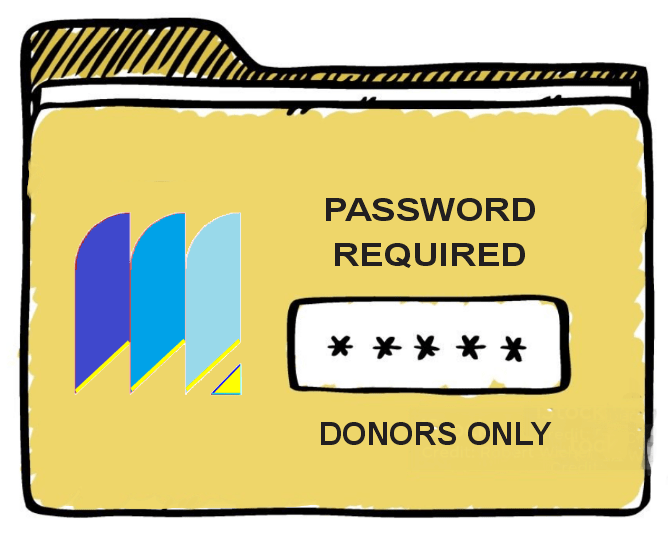
Want to hear a little something that will frighten you with the realization as to how quickly the world is changing before your very eyes in terms of technology?
Here are 10 things which are likely to disappear within our own lifetimes, for certain in the next generation’s. [ Though these apply to the USA primarily, CANADA is sure to follow very soon. ] As sad as the disappearance of some of these things will be, reality is they are destined for the trash heap, sooner than you expect.

- The Post Office
Get ready to imagine a world without the post office. They are so deeply in financial trouble that there is probably no way to sustain it long term. Email, Fed Ex, and UPS have just about wiped out the minimum revenue needed to keep the post office alive. Most of your mail every day is junk mail and bills.

- The Check
Britain is already laying the groundwork to do away with cheques by 2018. It costs the financial system billions of dollars a year to process cheques. Plastic cards and online transactions will lead to the eventual demise of the cheques. This plays right into the death of the post office. If you never paid your bills by mail and never received them by mail, the post office would absolutely go out of business.

- The Newspaper
The younger generation simply doesn’t read the newspaper. They certainly don’t subscribe to a daily delivered print edition. That may go the way of the milkman and the laundry man. As for reading the paper online, get ready to pay for it. The rise in mobile Internet devices and e-readers has caused all the newspaper and magazine publishers to form an alliance. They have met with Apple, Amazon, and the major cell phone companies to develop a model for paid subscription services.

- The Book
You say you will never give up the physical book that you hold in your hand and turn the literal pages. The same thing was said about downloading music from iTunes. Want your hard copy CD? They got you to switch when they offered albums for half the price. The same thing will happen with books. You can browse a bookstore online and even read a preview chapter before you buy. And the price is less than half that of a real book. And think of the convenience! Once you start flicking your fingers on the screen instead of the book, you find that you are lost in the story, can’t wait to see what happens next, and you forget that you’re holding a gadget instead of a book.

- The Land Line Telephone
Unless you have a large family and make a lot of local calls, you don’t need it anymore. Most people keep it simply because they’ve always had it. But you are paying double charges for that extra service. Almost all cell phone companies let you call customers using the same cell provider for no charge against your minutes. In other words, they will reduce prices to a level where you cannot resist them.

- Music
This is one of the saddest parts of the change story. The music industry is dying a slow death. Not just because of illegal downloading. It’s the lack of innovative new music being given a chance to get to the people who would like to hear it. Greed and corruption is the problem. The record labels and the radio conglomerates are simply self-destructing. Over 40% of the music purchased today is “catalog items,” meaning traditional music that the public is familiar with…older established artists. This is also true on the live concert circuit. To explore this fascinating and disturbing topic further, check out the book, “Appetite for Self-Destruction” by Steve Knopper, and the video documentary, “Before the Music Dies.”

- Television Revenues
The networks are down dramatically. Not just because of the economy. People are watching TV and movies streamed from their computers. And they’re playing games and doing lots of other things that take up the time that used to be spent watching TV. Prime time shows have degenerated down to lower than the lowest common denominator. Cable rates are skyrocketing and commercials run about every 4 minutes and 30 seconds. Good riddance to most of it. It’s time for the cable companies to be put out of our misery. Let the people choose what they want to watch online and through Netflix.

- The “Things” That You Own
Many of the very possessions that people used to own are still in our lives, but may not be actually owned in the near future. They may simply reside in “the cloud.” Today your computer has a hard drive where you store your pictures, music, movies, and documents. Your software is on a CD or DVD, and you can always re-install it if need be. But all of that is changing. Apple, Microsoft, and Google are all finishing up their latest “cloud services.” That means that when you turn on a computer, the Internet will be built into the operating system. So, Windows, Google, and the Mac OS will be tied straight into the Internet. If you click an icon, it will open something in the Internet cloud. If you save something, it will be saved to the cloud. And you may pay a monthly subscription fee to the cloud provider. In this virtual world, you can access your music or your books, or your whatever from any laptop or handheld device. That’s the good news. But, will you actually own any of this “stuff” or will it all be able to disappear at any moment in a big “Poof?” Will most of the things in our lives be disposable and whimsical? It makes you want to run to the closet and pull out that photo album, grab a book from the shelf, or open up a CD case and pull out the insert.

- Joined Handwriting (Cursive Writing)
Already gone in some schools where “joined handwriting” is no longer taught because nearly everything is done now on computers or keyboards of some type.

- Privacy
If there ever was a concept that we can look back on nostalgically, it would be privacy. That’s gone. It’s been gone for a long time anyway. There are cameras on the street, in most of the buildings, and even built into your computer and cell phone. But you can be sure that 24/7, “They” know who you are and where you are, right down to the GPS coordinates, and the Google Street View. If you buy something, your habit is put into a zillion profiles, and your ads will change to reflect those habits. “They” will try to get you to buy something else. Again and again and again.
Loss of privacy is the worst thing we can lose. In reality it is lost already and there is nothing we can do about it. If you don’t want others to know something from your private world, hide. Hiding it under the mattress may not be as silly as it sounds.
A few other things that should be added to this endangered list:
Bricks and mortar banks, retail stores, and maybe even restaurants. The Internet world is becoming so pervasive, you do not need to actually leave your home for anything. It can all be delivered, even now.
NFL football, Amercan football, is doomed because of the rising number of injuries. The game will change, rather than disappearing as there is too much money at stake to see it wiped away completely. But the game will be unrecognizable after it morphs.
Automobiles which you drive, along with gas stations, auto mechanics and dealerships. The Internet and AI ( artificial intelligence, robots) will wipe out many of these things.
There is a 1969 hit song, “In the year 2565,” where the future is predicted. Children are obsolete given test tube conception, thoughts are preprogrammed into pills.
The song opens with
“In the year 2525,If man is still alive,If woman can survive,They may find…” and it ends with an ominous apocalyptic closing:
“Now it’s been 10,000 years.
Man has cried a billion tears,
For what, he never knew.
Now man’s reign is through.
But through eternal night,
The twinkling of starlight.
So very far away, Maybe it’s only yesterday.
All we will have left that which can’t be changed…….are our “Memories.” Better cherish them as they will be gone too depending on the strength of your own memory.











